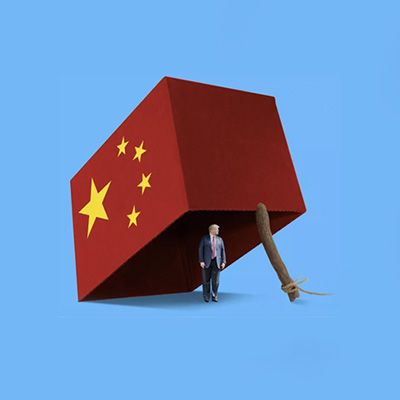
Fiat Chrysler's proposed marriage with Renault could help both companies confront an expensive shift to electric, self-driving cars, but the $35 billion tie-up would be complicated: Renault is already hitched to Nissan and Mitsubishi, which aren't part of the deal.
Why it matters: FCA's proposal — a 50-50 merger that would create the world's third-largest automaker — comes amid tensions within the existing Renault-Nissan alliance, following the arrest and ouster of former chairman Carlos Ghosn late last year. Nissan has resisted Renault's push for a full merger between the deeply integrated French and Japanese partners, opening the door for FCA to act.
The big picture: Creating a global automotive powerhouse had long been the goal of both the ousted Ghosn and the late FCA chief Sergio Marchionne, who died last year without achieving his objective. But the motivations that drove their thinking are still relevant today:
- Automakers face intense pressure to invest in new technologies like autonomy and electrification, but even the largest automakers aren’t sure when — if ever — they'll see a payoff.
- Global auto sales are slowing, and industry profits are being squeezed.
- Marchionne warned the industry could go broke chasing redundant technologies.
Be smart: FCA submitted its proposal to Renault's board Monday morning in Paris, but the two companies have already worked out many of the details.
- John Elkann, head of the Agnelli family that controls FCA, would be chairman while Renault chairman Jean-Dominique Senard would likely become CEO, Reuters reported.
- Together, the companies would produce more than 8.7 million vehicles a year.
- The merger would generate savings of 5 billion euros annually ($5.6 billion), FCA projects.
- The combined company would rank third behind Toyota and Volkswagen.
- FCA says no plants would be closed, and no jobs lost, although that remains to be seen with industry sales dropping.
- The deal would bring Fiat Chrysler's Ram trucks and Jeep SUVs together with Renault's electric vehicle leadership.
- It would also strengthen both companies' hands in North America, South America and Europe. China would continue to be a weak spot.
- Notably missing from the brand portfolio FCA described: the Chrysler and Dodge brands, which could be phased out in a merger.
Flashback: It would not be the first time that Renault and Jeep were joined together. In the 1980s, the French company owned Jeep parent American Motors. Chrysler bought AMC in 1987.
What to watch: FCA says Nissan and Mitsubishi are welcome to join the combined entity later, and offered Nissan, which is 43% owned by Renault, a seat on the board of the new company. Together, they would form the world's largest automaker — by far — but...

